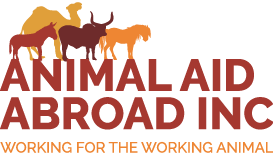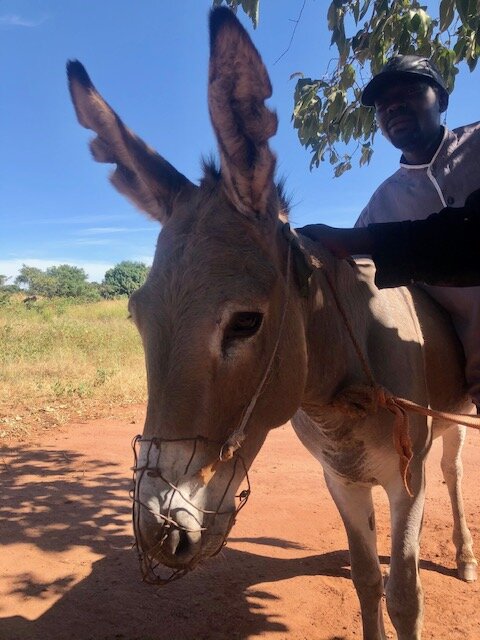Zambezi Working Donkey Project updates us on their April activity
The first quarter of 2021 was very busy, once the seasonal rains subsided. Despite the ongoing challenging circumstances, we are still doing all we can to improve the lives of working donkeys in Zambia. The last 12 months have been particularly difficult, and we know not just for us. Covid-19 has had devastating consequences all round, especially for communities and animals who rely on the help of NGOs. Who could have known a year ago what troubled times lay ahead? In any case, thanks to the consistent support of Animal Aid Abroad, we have been able to achieve a lot in the last year and we are proud to set out some of these in the update that follows.
We still have much work to do here, in terms of educating the owners of donkeys, and finding ways to align animal welfare with the practical realities of daily life. However, one of the best indicators of the impact we are having is when we visit the markets in Livingstone... Our market clinics are always random, to make sure we are reaching donkeys whose owners may not otherwise bring them to an organised event. When we first began we only found the terrible wooden ox-yokes in use, and the general condition of donkeys and the scale of open wounds and other injuries was horrendous. On recent visits however, we have found that as many as 80% of carts now have humane harnesses which people have either received from us or, in some cases, made themselves! Donkeys haul their loads of vegetables, firewood and charcoal from villages up to 40km away, and are often left to stand in the sun all day with no food or water, before making in the gruelling journey home again, often with a return load of goods from town. While we still come across the yokes (which we are quick to replace), we are now spending more time focussed on teaching people about the importance of padding their harnesses, loading carts correctly, and ensuring their donkeys get enough rest, food and water.
The general level of interest in our work remains high and, due to our Community Livestock Officer training program, we have more of a presence in the community which means we get to hear about sick or injured donkeys quicker. Our staff are now often called when there is an emergency, which means a greater chance of donkeys’ recovery.
So far, since we started our mobile clinics two years ago, we have…
- Undertaken 28 community mobile clinics, and numerous market visits and home check-ups, as well as helping donkeys from our workshop and rescue centre at our Maramba Farm base.
- Conducted welfare checks and provided treatment for 904 donkeys!
- Engaged and educated 295 owners and over 2000 community members.
- Provided 430 humane harnesses and adapted 215 scotch carts!
But… the number of working donkeys in Zambia is increasing all the time, as they are seen as a ‘cheaper’ and more disposable alternative to oxen – used and abused until they can go on no more, and then traded as meat or skins in exchange for able-bodied animals. So our work to educate people continues to grow, as does the need for the rescue centre...
To date we have rescued 32 donkeys in serious need, who have been brought to our base at Maramba Farm for treatment or retirement. These donkeys were either released to us by their owners or confiscated with the aid of local authorities. The destiny of the rescue donkeys is mixed at present – some are returned to their owners (once owners have been educated and we are satisfied that the donkeys will not suffer further), some are placed into long-term adopted (non-working) homes, and 14 are now permanently in the care of ZWDP (incl. 4 orphaned foals). One priority currently is to extend the rescue centre so that we have capacity to rescue and rehome ANY DONKEY IN NEED and never have to turn a donkey away… We continuously try to improve the space for our rescued donkeys, to make sure they have a comfortable and suitable place to live but we do need to develop more appropriate facilities for those requiring more special attention, particularly a sterile veterinary treatment area and quarantine paddocks for new arrivals.
Finally, we would like to send our sincerest thanks to all of the wonderful AAA supporters whose empathy, generosity and devotion to animal welfare are helping thousands of working animals around the world. The work you do has never been more vital.







